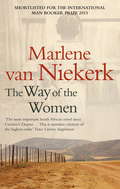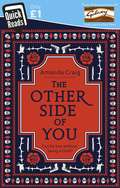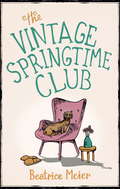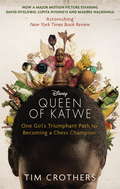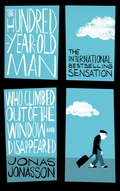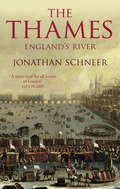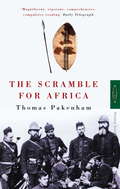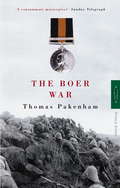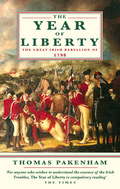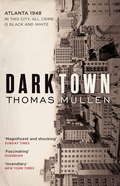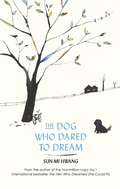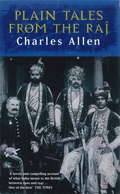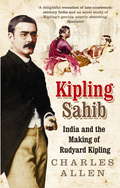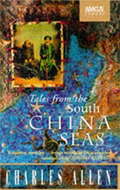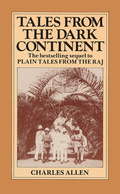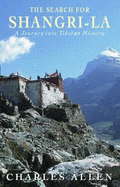- Table View
- List View
The Way Of The Women
by Marlene van NiekerkHow can you speak when speech has been taken away? When the only person listening refuses to understand? Milla, trapped in silence by a deadly paralysing illness, confined to her bed, struggles to make herself heard by her maidservant and now nurse, Agaat. Contrary, controlling, proud, secretly affectionate, the two women, servant and mistress, are more than matched. Life for white farmers like Milla in the South Africa of the 1950s was full of promise - newly married, her future held the thrilling challenges of creating her own farm and perhaps one day raising children. Forty years later, the world Milla knew is as if seen in a mirror, and all she has left are memories and diaries. As death draws near, she looks back on good intentions and soured dreams, on a brutal marriage and a longed-for only son scarred by his parents' battles, and on a lifetime's tug-of-war with Agaat. As Milla's old white world recedes, in the new South Africa her guardian's is ever more filled with the prospect of freedom. Marlene Van Niekerk's is a stunning new literary voice from South Africa, to compare to J.M. Coetzee and Nadine Gordimer.
The Other Side of You: Quick Reads
by Amanda CraigWill must run, or die. He's seen a murder, and the gang on his estate are after him.Hurt, hungry and afraid, he comes to an abandoned house in a different part of the city. Behind its high fences is a place of safety. Here, he can hide like a wounded beast. He can find food, and healing - and learn how to do more than survive.But when Will meets Padma, he must choose between his good side and his bad one. For the gang he left behind is still there. How can he live without becoming a killer? How can he love without being a thief?Exciting, fast-paced and different, this is a story that keeps you reading until the last line.
The Vintage Springtime Club: A charming novel for fans of The Hundred-Year-Old Man Who Climbed Out of the Window and Disappeared
by Beatrice MeierPerfect for fans of A MAN CALLED OVE, THE BEST EXOTIC MARIGOLD HOTEL and THE LITTLE PARIS BOOKSHOP Newly retired Philip returns home to Cologne and is thrown into emotional turmoil upon bumping into his long-lost sweetheart. In the midst of a domestic crisis, Ricarda confides in Philip that she is looking for somewhere to live. And there and then, Philip suggests that she move in with him - he is setting up a flatshare. Will she join him with his mischievous dachshund named Ralf?To his surprise, Ricarda agrees, leaving Philip to scramble together a crew of retires in time for spring, for the most unlikely of social experiments. There's grumpy cigarette-smoking grandfather Harry; quiet and discreet Eckart, curiously carting around his late wife's headstone; Uschi, brimming with life, harbouring a passion for leotards and aerobics, along with sausages and outrageous knitting patterns; and then, ever-practical and warm-hearted Ricarda, towards whom Phillip is developing real feelings. Despite their differences, the flatmates thrive and embark on a series of new adventures. But when Uschi falls unwell, familiar cracks begin to show and this uniquely spirited club of friends must work together in order to survive - and truly blossom.Read what people are saying about The Vintage Springtime Club'Such a wonderful, uplifting story. When I finished I felt a warm frisson of emotion enveloping me. It's difficult to believe this is Beatrice's first novel' (Kraftireader) 'This gentle book is full of warmth and is an easy enjoyable read' (Portobello Book Blog)'A charming debut novel' (Alba Forcadell)'A wonderful tale of life, friendship and love that kept me hooked until the very end' (Reading Room With a View)
The Vintage Springtime Club: A charming novel for fans of The Hundred-Year-Old Man Who Climbed Out of the Window and Disappeared
by Beatrice MeierPerfect for fans of A MAN CALLED OVE, THE BEST EXOTIC MARIGOLD HOTEL and THE LITTLE PARIS BOOKSHOP Newly retired Philip returns home to Cologne and is thrown into emotional turmoil upon bumping into his long-lost sweetheart. In the midst of a domestic crisis, Ricarda confides in Philip that she is looking for somewhere to live. And there and then, Philip suggests that she move in with him - he is setting up a flatshare. Will she join him with his mischievous dachshund named Ralf?To his surprise, Ricarda agrees, leaving Philip to scramble together a crew of retires in time for spring, for the most unlikely of social experiments. There's grumpy cigarette-smoking grandfather Harry; quiet and discreet Eckart, curiously carting around his late wife's headstone; Uschi, brimming with life, harbouring a passion for leotards and aerobics, along with sausages and outrageous knitting patterns; and then, ever-practical and warm-hearted Ricarda, towards whom Phillip is developing real feelings. Despite their differences, the flatmates thrive and embark on a series of new adventures. But when Uschi falls unwell, familiar cracks begin to show and this uniquely spirited club of friends must work together in order to survive - and truly blossom.
The Queen of Katwe: One Girl's Triumphant Path to Becoming a Chess Champion
by Tim CrothersOne day in 2005 while searching for food, nine-year-old Ugandan Phiona Mutesi followed her brother to a dusty veranda where she met Robert Katende.Katende, a war refugee turned missionary, had an improbable dream: to empower kids in the Katwe slum through chess - a game so foreign there is no word for it in their native language. Laying a chessboard in the dirt, Robert began to teach. At first children came for a free bowl of porridge, but many grew to love the game that - like their daily lives - requires persevering against great obstacles. Of these kids, one girl stood out as an immense talent: Phiona.By the age of eleven Phiona was her country's junior champion, and at fifteen, the national champion. Now a Woman Candidate Master - the first female titled player in her country's history - Phiona dreams of becoming a Grandmaster, the most elite level in chess. But to reach that goal, she must grapple with everyday life in one of the world's most unstable countries. The Queen of Katwe is a remarkable and inspirational book that shows how 'Phiona's story transcends the limitations of the chessboard' (Robert Hess, US Grandmaster).
The Hundred-Year-Old Man Who Climbed Out of the Window and Disappeared: A Novel
by Jonas JonassonTHE GLOBAL BESTSELLER Sitting quietly in his room in an old people's home, Allan Karlsson is waiting for a party he doesn't want to begin. His one-hundredth birthday party to be precise. The Mayor will be there. The press will be there. But, as it turns out, Allan will not . . .Escaping (in his slippers) through his bedroom window, into the flowerbed, Allan makes his getaway. And so begins his picaresque and unlikely journey involving criminals, several murders, a suitcase full of cash, and incompetent police. As his escapades unfold, Allan's earlier life is revealed. A life in which - remarkably - he played a key role behind the scenes in some of the momentous events of the twentieth century.Translated by Roy Bradbury.
The Thames: England's River
by Jonathan SchneerThe Thames is liquid history' John Burns MP (1858-1943)As the silver thread woven through Britain's centuries, the Thames is the subject of this significant biography. Following its course, geologically and chronologically, THE THAMES will chart the growing importance of the river and some of the dramatic historic events it was central to. Since Tudor times, the Thames has been a key factor in our understanding of the British nation. At Runnymede, in a field by the river, England's barons forced King John to sign the Magna Carta in 1215. At Tilbury, on the banks of the Thames, in 1588, Elizabeth exhorted her troops to defy the Spanish Armada. In dockland, in east London, in 1940, local residents absorbed the full fury of Hitler's dreaded Luftwaffe. Hitler tried, and failed, to destroy the Port of London, symbol of British commercial power, reservoir of the material needed to fuel and fund the British war effort. This is a book about a river, but also about the evolution, though not always smooth, of a national identity.
The Scramble For Africa
by Thomas PakenhamIn 1880 the continent of Africa was largely unexplored by Europeans. Less than thirty years later, only Liberia and Ethiopia remained unconquered by them. The rest - 10 million square miles with 110 million bewildered new subjects - had been carved up by five European powers (and one extraordinary individual) in the name of Commerce, Christianity, 'Civilization' and Conquest. The Scramble for Africa is the first full-scale study of that extraordinary episode in history.
The Scramble For Africa
by Thomas PakenhamIn 1880 the continent of Africa was largely unexplored by Europeans. Less than thirty years later, only Liberia and Ethiopia remained unconquered by them. The rest - 10 million square miles with 110 million bewildered new subjects - had been carved up by five European powers (and one extraordinary individual) in the name of Commerce, Christianity, 'Civilization' and Conquest. The Scramble for Africa is the first full-scale study of that extraordinary episode in history.
The Boer War: A Boer Journal Of The Anglo-boer War
by Thomas PakenhamFeaturing previously unpublished sources, this 'enjoyable as well as massively impressive' bestseller is a definitive account of the Boer War (Financial Times)The war declared by the Boers on 11 October 1899 gave the British, as Kipling said, 'no end of a lesson'. It proved to be the longest, the costliest, the bloodiest and the most humiliating campaign that Britain fought between 1815 and 1914.Thomas Pakenham's narrative is based on first-hand and largely unpublished sources ranging from the private papers of the leading protagonists to the recollections of survivors from both sides. Mammoth in scope and scholarship, as vivid, fast-moving and breathtakingly compelling as the finest fiction. The Boer War is the definitive account of this extraordinary conflict - a war precipitated by greed and marked by almost inconceivable blundering and brutalities...and whose shattering repercussions can be felt to this very day.'Not only a magnum opus, it is a conclusive work ... Enjoyable as well as massively impressive' -Financial Times'This is a wonderful book: brilliantly written ... the reader turns each page with increasing fascination and admiration' -A.J.P. Taylor
The Boer War: A Boer Journal Of The Anglo-boer War
by Thomas PakenhamFeaturing previously unpublished sources, this 'enjoyable as well as massively impressive' bestseller is a definitive account of the Boer War (Financial Times)The war declared by the Boers on 11 October 1899 gave the British, as Kipling said, 'no end of a lesson'. It proved to be the longest, the costliest, the bloodiest and the most humiliating campaign that Britain fought between 1815 and 1914.Thomas Pakenham's narrative is based on first-hand and largely unpublished sources ranging from the private papers of the leading protagonists to the recollections of survivors from both sides. Mammoth in scope and scholarship, as vivid, fast-moving and breathtakingly compelling as the finest fiction. The Boer War is the definitive account of this extraordinary conflict - a war precipitated by greed and marked by almost inconceivable blundering and brutalities...and whose shattering repercussions can be felt to this very day.'Not only a magnum opus, it is a conclusive work ... Enjoyable as well as massively impressive' -Financial Times'This is a wonderful book: brilliantly written ... the reader turns each page with increasing fascination and admiration' -A.J.P. Taylor
The Year Of Liberty: The Great Irish Rebellion of 1789
by Thomas PakenhamThis classic account of the great Irish rebellion of 1798 remains the only full-scale history of that tragic event. As relevant today as it was when first published in 1969, THE YEAR OF LIBERTY is now reissued with the addition of a chronology and a glossary of terms. In May 1798 a hundred thousand peasants rose against the British government in Ireland. By the time the revolt had been put down four months later, thirty thousand dead were literally rotting in heaps in a smoking and desolate countryside. Yet it was not a schoolroom story of the heroic oppressed rising against the brutal oppressor, but the result of a complex, tragic, often absurd and sometimes heroic interplay between different groups of people. A tough and arrogant oligarchy of country gentlemen, mainly Protestant and mainly British in origin, lived off a Catholic peasantry. Meanwhile, idealistic merchants and hot-headed young lawyers dreamed and plotted for an Irish Republic on the French model. From a mass of sources including confidential government reports, contemporary newspapers, poems, broadsheets and letters, the author pieces together a story at once complex, tragic, absurd and heroic.
The Year Of Liberty: The Great Irish Rebellion of 1789
by Thomas PakenhamThis classic account of the great Irish rebellion of 1798 remains the only full-scale history of that tragic event. As relevant today as it was when first published in 1969, THE YEAR OF LIBERTY is now reissued with the addition of a chronology and a glossary of terms. In May 1798 a hundred thousand peasants rose against the British government in Ireland. By the time the revolt had been put down four months later, thirty thousand dead were literally rotting in heaps in a smoking and desolate countryside. Yet it was not a schoolroom story of the heroic oppressed rising against the brutal oppressor, but the result of a complex, tragic, often absurd and sometimes heroic interplay between different groups of people. A tough and arrogant oligarchy of country gentlemen, mainly Protestant and mainly British in origin, lived off a Catholic peasantry. Meanwhile, idealistic merchants and hot-headed young lawyers dreamed and plotted for an Irish Republic on the French model. From a mass of sources including confidential government reports, contemporary newspapers, poems, broadsheets and letters, the author pieces together a story at once complex, tragic, absurd and heroic.
Darktown (Darktown)
by Thomas Mullen'A brilliant blending of crime, mystery, and American history. Terrific entertainment'Stephen KingDarktown is a relentlessly gripping, highly intelligent crime novel set in Atlanta in 1948, following the city's first black police force investigating a brutal murder against all the odds.'Crime fiction that melds an intense plot with fully realized characters'Daily MailAtlanta, 1948. In this city, all crime is black and white.On one side of the tracks are the rich, white neighbourhoods; on the other, Darktown, the African-American area guarded by the city's first black police force of only eight men. These cops are kept near-powerless by the authorities: they can't arrest white suspects; they can't drive a squad car; they must operate out of a dingy basement.When a poor black woman is killed in Darktown having been last seen in a car with a rich white man, no one seems to care except for Boggs and Smith, two black cops from vastly different backgrounds. Pressured from all sides, they will risk their jobs, the trust of their community and even their own lives to investigate her death.Their efforts bring them up against a brutal old-school cop, Dunlow, who has long run Darktown as his own turf - but Dunlow's idealistic young partner, Rakestraw, is a young progressive who may be willing to make allies across colour lines . . .Soon to be a major TV series from Jamie Foxx and Sony Pictures Television.
The Dog Who Dared to Dream
by Sun-mi HwangFROM THE INTERNATIONAL BESTSELLING AUTHOR SUN-MI HWANG This is the story of a dog named Scraggly. Born an outsider because of her distinctive appearance, she spends most of her days in the sun-filled yard of her owner's house. Scraggly has dreams and aspirations just like the rest of us. But each winter, dark clouds descend and Scraggly is faced with challenges that she must overcome. Through the clouds and even beyond the gates of her owner's yard lies the possibility of friendship, motherhood and happiness - they are for the taking if Scraggly can just hold on to them, bring them home and build the life she so desperately desires. The Dog Who Dared to Dream is a wise tale of the relationship between dog and man, as well as a celebration of a life lived with courage. Translated into English for the first time, it is a classic from Sun-mi Hwang, the international bestselling author.
The Dog Who Dared to Dream
by Sun-Mi HwangThis is the story of a dog named Scraggly. Born an outsider because of her distinctive appearance, she spends most of her days in the sun-filled yard of her owner's house. Scraggly has dreams and aspirations just like the rest of us. But each winter, dark clouds descend and Scraggly is faced with challenges that she must overcome. Through the clouds and even beyond the gates of her owner's yard lies the possibility of friendship, motherhood and happiness - they are for the taking if Scraggly can just hold on to them, bring them home and build the life she so desperately desires. The Dog Who Dared to Dream is a wise tale of the relationship between dog and man, as well as a celebration of a life lived with courage. Translated into English for the first time, it is a classic from Sun-mi Hwang, an international bestselling author.
Plain Tales From The Raj: Images of British India in the 20th Century
by Charles AllenThe Raj was, for two hundred years, the jewel in the British imperial crown. Although founded on military expansionism and undoubted exploitation, it developed over the centuries into what has been called 'benign autocracy' - the government of many by few, with the active collaboration of most Indians in recognition of a desire for the advancement of their country.Charles Allen's classic oral history of the period that marked the end of British rule was first published a generation ago. Now reissued as the imperial century closes, this brilliantly insightful and bestselling collection of reminiscences illustrates the unique experience of British India: the sadness and luxury for some; the joy and deprivation for others.
Plain Tales From The Raj: Images of British India in the 20th Century
by Charles AllenThe Raj was, for two hundred years, the jewel in the British imperial crown. Although founded on military expansionism and undoubted exploitation, it developed over the centuries into what has been called 'benign autocracy' - the government of many by few, with the active collaboration of most Indians in recognition of a desire for the advancement of their country.Charles Allen's classic oral history of the period that marked the end of British rule was first published a generation ago. Now reissued as the imperial century closes, this brilliantly insightful and bestselling collection of reminiscences illustrates the unique experience of British India: the sadness and luxury for some; the joy and deprivation for others.
Kipling Sahib: India and the Making of Rudyard Kipling 1865-1900
by Charles AllenRudyard Kipling was born in Bombay in 1865 and spent his early years there, before being sent, aged six, to England, a desperately unhappy experience. Charles Allen's great-grandfather brought the sixteen-year-old Kipling out to Lahore to work on The Civil and Military Gazette with the words 'Kipling will do', and thus set young Rudyard on his literary course. And so it was that at the start of the cold weather of 1882 he stepped ashore at Bombay on 18 October 1882 - 'a prince entering his kingdom'. He stayed for seven years during which he wrote the work that established him as a popular and critical, sometimes controversial, success. Charles Allen has written a brilliant account of those years - of an Indian childhood and coming of age, of abandonment in England, of family and Empire. He traces the Indian experiences of Kipling's parents, Lockwood and Alice and reveals what kind of culture the young writer was born into and then returned to when still a teenager. It is a work of fantastic sympathy for a man - though not blind to Kipling's failings - and the country he loved.
Kipling Sahib: India and the Making of Rudyard Kipling 1865-1900
by Charles AllenRudyard Kipling was born in Bombay in 1865 and spent his early years there, before being sent, aged six, to England, a desperately unhappy experience. Charles Allen's great-grandfather brought the sixteen-year-old Kipling out to Lahore to work on The Civil and Military Gazette with the words 'Kipling will do', and thus set young Rudyard on his literary course. And so it was that at the start of the cold weather of 1882 he stepped ashore at Bombay on 18 October 1882 - 'a prince entering his kingdom'. He stayed for seven years during which he wrote the work that established him as a popular and critical, sometimes controversial, success. Charles Allen has written a brilliant account of those years - of an Indian childhood and coming of age, of abandonment in England, of family and Empire. He traces the Indian experiences of Kipling's parents, Lockwood and Alice and reveals what kind of culture the young writer was born into and then returned to when still a teenager. It is a work of fantastic sympathy for a man - though not blind to Kipling's failings - and the country he loved.
Tales From The South China Seas: Images of the British in South East Asia in the Twentieth Century
by Charles AllenThis work chronicles the adventures of the last generation of British men and women who went East to seek their fortunes. Drawn into the colonial territories scattered around the South China Sea, they found themselves in an exotic, intoxicating world. It was a land of rickshaws and shanghai jars, sampans and Straits Steamers, set against a background of palm-fringed beaches and tropical rain-forests. But it was also a world of conflicting beliefs and many races, where the overlapping of widely differing moral standards and viewpoints created a heady and dangerous atmosphere.
Tales From The South China Seas: Images of the British in South East Asia in the Twentieth Century
by Charles AllenThis work chronicles the adventures of the last generation of British men and women who went East to seek their fortunes. Drawn into the colonial territories scattered around the South China Sea, they found themselves in an exotic, intoxicating world. It was a land of rickshaws and shanghai jars, sampans and Straits Steamers, set against a background of palm-fringed beaches and tropical rain-forests. But it was also a world of conflicting beliefs and many races, where the overlapping of widely differing moral standards and viewpoints created a heady and dangerous atmosphere.
Tales From the Dark Continent: Images of British Colonial Africa in the Twentieth Century
by Charles AllenCharles Allen captures the vanished world of British Colonial Africa in the recollections of the pioneering men and women who lived and worked there.
Tales From the Dark Continent: Images of British Colonial Africa in the Twentieth Century
by Charles AllenCharles Allen captures the vanished world of British Colonial Africa in the recollections of the pioneering men and women who lived and worked there.
The Search For Shangri-La: A Journey into Tibetan History
by Charles AllenThe idea of a hidden refuge, a paradise far from the stresses of modern life, has universal appeal. In 1932 the writer James Hilton coined the word 'Shangri-La' to describe such a place, when he gave that name to a hidden valley in the Himalayas in his novel LOST HORIZON.In THE SEARCH FOR SHANGRI-LA acclaimed traveller and writer Charles Allen explores the myth behind the story. He tracks down the sources that Hilton drew upon in writing his popular romance, and then sets out to discover what lies behind the legend that inspired him. In the course of a lively and amusing account of his four journeys into Tibet, Allen also gives us a controversial new reading of the country's early history, shattering our notions of Tibet as a Buddhist paradise and restoring the mysterious pre-Buddhist religion of Bon to its rightful place in Tibetan culture. He also locates the lost kingdom of Shang-shung and, in doing so, the original Shangri-La itself: in an astounding gorge beyond the Himalayas, full of extraordinary ruins.
